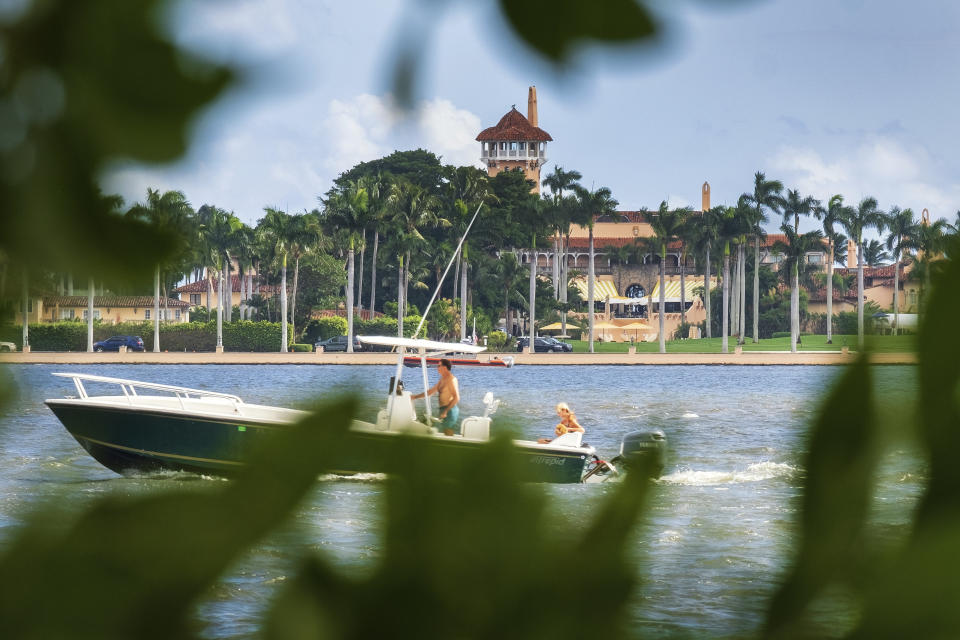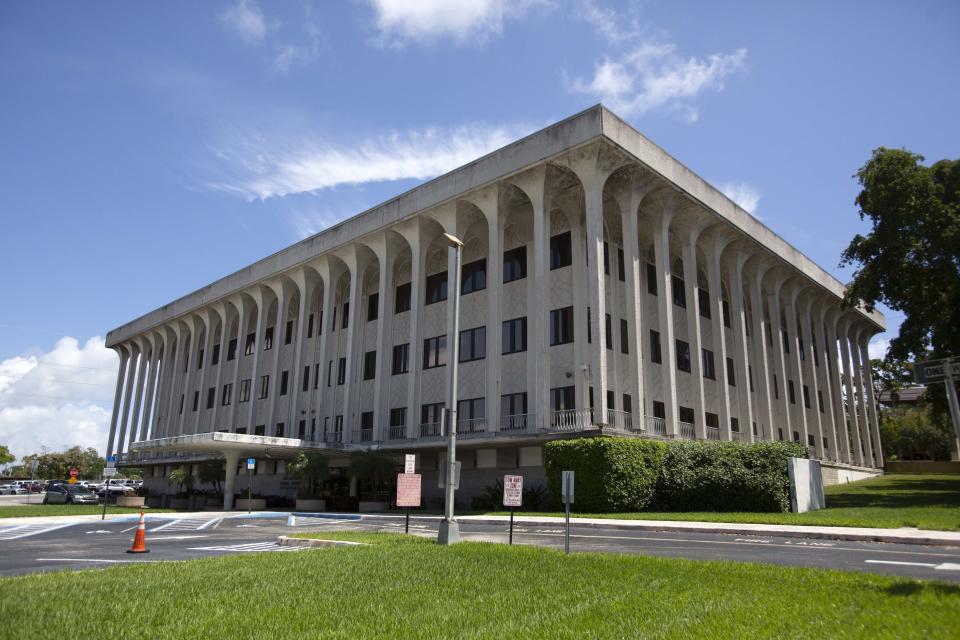Arrest of woman at Mar-a-Lago raises questions about Chinese espionage

WASHINGTON — At next week’s bond hearing for a Chinese woman who was arrested after gaining entry to Mar-a-Lago, President Trump’s private club in Florida, a central question may be whether there’s a risk that Yujing Zhang represents a security threat, or simply a befuddled private citizen looking to network.
When Zhang tried to enter Mar-a-Lago on March 30, she was carrying two Chinese passports, a laptop, four cellphones and what the U.S. government describes as a USB drive laced with “malware.” Though Zhang has not been charged with espionage, federal prosecutors revealed in court on Monday that law enforcement had also discovered an unusual stash of technology in her hotel room, including thumb drives, five extra SIM cards, a device used to detect hidden cameras and around $8,000 in cash.
The government has tried to paint a dark portrait of those details, though her lawyers are arguing there may be more innocuous explanations. For example, the defense submitted court exhibits including photocopies of Zhang’s two Chinese passports, one expired, which contained her valid U.S. 10-year visa, and the other current. In fact, the U.S. government advises foreigners to carry both passports with them in these cases — expired and current — which is what Zhang appeared to do.
“That is very common and is an accepted practice,” Robert Adler, Zhang’s public defender, wrote in an email to Yahoo News. “And her B1/B2 visa could have only been obtained after an interview with our State Department.”
Adler declined to comment on any specifics of the ongoing case.
But Zhang, according to prosecutors, told an inconsistent story about the reason for her visit to the private club, where she was not a member: She first said she wanted to visit the pool, and then she claimed a Chinese friend had invited her to attend an event, seek business contacts and speak to associates of the Trump family about U.S.-China economic relations.
Zhang’s visit has also raised questions about the security of the club, which Trump uses frequently for both vacation and business.

While ultimately stopped by a receptionist, Zhang was able to bypass U.S. Secret Service, and the FBI is reportedly probing if she is connected to recently arrested Li “Cindy” Yang, who owned a massage parlor suspected of human trafficking and who allegedly offered to sell access to the president through social events at the Florida golf club. Yang has denied knowing Zhang.
The FBI is reportedly bulking up a counterintelligence investigation that now includes Zhang, according to the Miami Herald.
Trump said he is “not concerned at all,” declaring the Zhang incident a “fluke.”
Experts on Chinese espionage and foreign affairs were hesitant to speak specifically about Zhang’s case because of the limited information available. However, the case may be an example of how “squishy” — or ambiguous — Chinese intelligence operations are by design, often utilizing everyone from amateurs to experts, one China expert told Yahoo News.
“If this was a Chinese intel operation, it’s aggressive and clumsy,” said one former intelligence officer who worked on China issues. “Which would also not be surprising.”
Peter Mattis, a former intelligence officer and now a research fellow at the Victims of Communism Memorial Foundation, has cautioned that Chinese espionage operations are often wrongly assumed to be very sophisticated. “Instead, the Chinese intelligence threat for many years has come from the scope, scale, and potential impact of Beijing’s collection efforts,” he wrote.
A flawed metaphor emerged in the 1980s about how China employs a large number of amateurs to collect small “grains of sand” or bits of information in order to gather intelligence, according to Mattis. But in fact, he argues that “multiple professional systems” operate alongside more amateurish efforts.
It’s unclear whether Zhang was gathering grains of sand, or doing something else entirely, but her efforts were clearly not sophisticated.

Whether Trump’s frequent presence at Mar-a-Lago is a security concern is a matter open for debate. The Government Accountability Office in February 2019 said the Secret Service had processes in place to protect the president while visiting the resort.
Todd Madison, a former U.S. Secret Service special agent who was a part of former President Bill Clinton’s protective division, wrote in an email to Yahoo News that “security professionals charged with protecting presidents, and public officials in general, must strike a delicate balance of maintaining their accessibility to the public, while also ensuring they remain out of harm’s way.”
Protecting the commander in chief has evolved over time, and the introduction of technology and increasing ease of connecting with the president and his family members makes the Secret Service’s job more difficult.
“Rapidly evolving technology can increase security risks in unexpected ways,” wrote Madison, who is now an associate managing director with corporate investigations firm K2 Intelligence.
This isn’t the first time concerns have been raised about security at Mar-a-Lago.
Following a chemical attack on the Syrian town of Khan Sheikhoun in April 2017, the president and a good portion of his Cabinet were gathered at Trump’s “Winter White House,” or Mar-a-Lago — where he announced over dessert to Chinese President Xi Jinping he was “launching 59 missiles into Syria,” according to a recollection from Commerce Secretary Wilbur Ross.
While the decision to make the strike was made in a private room, Trump and his advisers were seen reviewing sensitive documents about Syria over dinner at the Florida resort.
Read more from Yahoo News:

